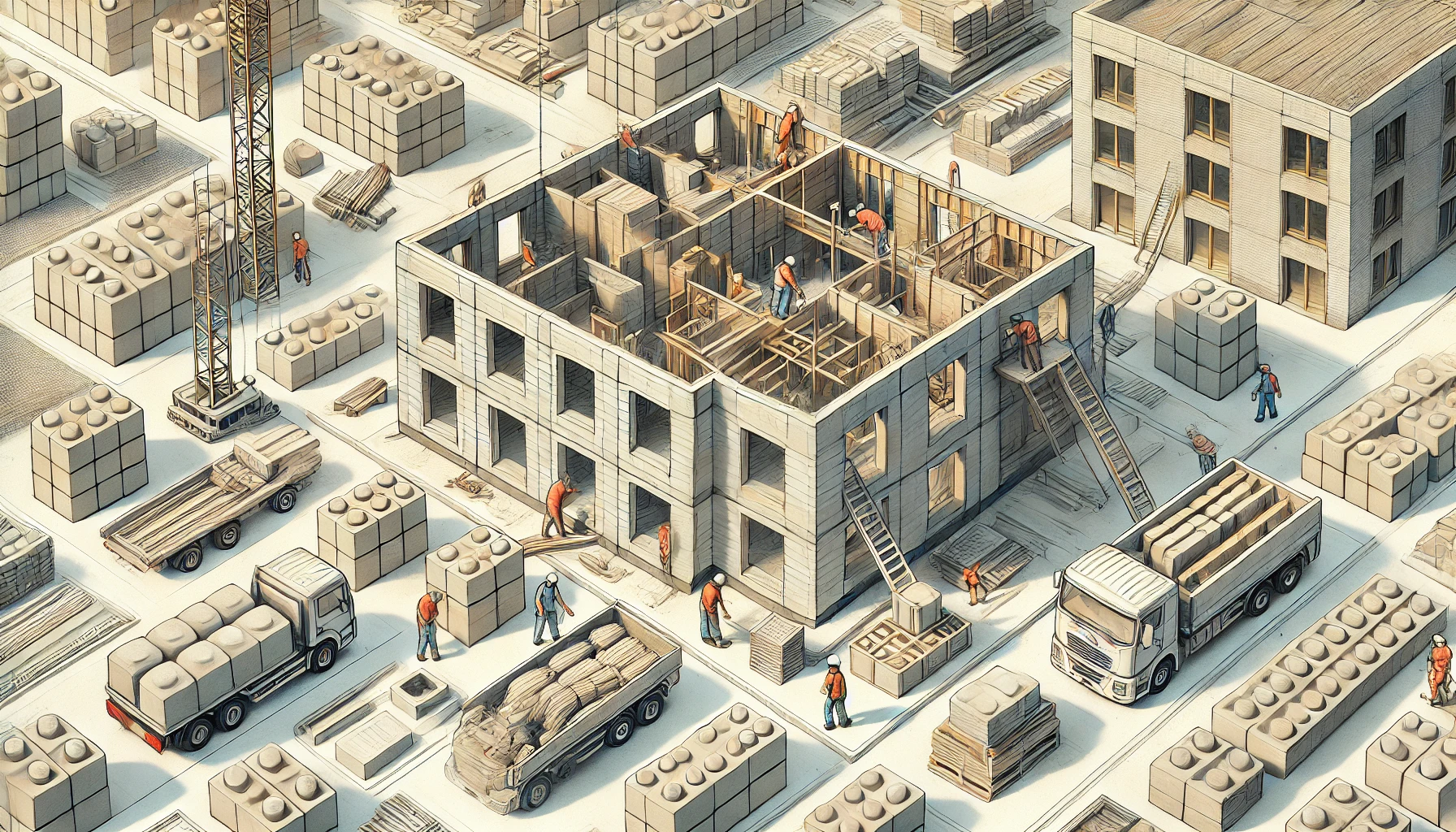Block building, a method rooted in the concept of modular construction, is transforming the architecture and construction industry. This innovative technique involves the use of pre-fabricated blocks or units that are assembled on-site, offering efficiency, flexibility, and sustainability. Whether for residential, commercial, or industrial projects, block building has become a popular choice for architects and developers aiming to streamline construction processes without compromising on quality or durability.
What is Block Building?
Block building refers to the practice of constructing structures using pre-formed blocks, often made from materials like concrete, clay, or other composites. These blocks are designed to fit together in various configurations, allowing for quick and efficient construction with minimal on-site labor. The modular nature of block building makes it ideal for both small-scale and large-scale projects.
Benefits of Block Building
-
Speed and Efficiency: One of the biggest advantages of block building is the speed at which structures can be erected. Since the blocks are manufactured off-site and simply assembled on location, construction time is significantly reduced compared to traditional building methods.
Example: A residential home that would traditionally take months to build can be completed in weeks using block building techniques.
-
Cost-Effectiveness: The pre-fabrication process allows for better cost control as it reduces on-site labor costs, waste, and construction delays. Block building is often more affordable, especially for projects with a repetitive design, like apartments or office complexes.
-
Sustainability: Block building contributes to sustainable construction practices by reducing material waste and energy consumption during the building process. Many modern blocks are made from eco-friendly or recycled materials, further lowering the environmental impact.
-
Durability and Strength: The blocks used in this construction are engineered for strength and resilience, often providing better insulation, soundproofing, and weather resistance than traditional materials. This durability ensures that block-built structures are long-lasting and require minimal maintenance.
-
Design Flexibility: Although block building is often associated with standardized designs, modern techniques allow for considerable architectural flexibility. Blocks can be customized in various shapes, sizes, and finishes to create unique and aesthetically pleasing designs.
Applications of Block Building
-
Residential Projects: Block building is commonly used in housing developments where multiple units need to be constructed quickly and affordably. This method is ideal for apartment complexes, townhouses, and affordable housing schemes.
-
Commercial Buildings: For office buildings, shopping centers, and industrial facilities, block building offers the advantage of quick turnaround times while ensuring a high level of durability and functionality.
-
Educational and Healthcare Facilities: Schools, hospitals, and clinics often rely on block building for fast construction that meets high standards of safety and accessibility.
The Future of Block Building
As the demand for faster, more sustainable construction grows, block building is poised to become an even more prevalent method. Advancements in technology, such as 3D printing of blocks and the use of smart materials, will further enhance the possibilities of block-based construction.
With benefits such as speed, cost savings, and sustainability, block building is not just a trend—it’s a transformative approach to construction that meets the modern needs of efficiency and environmental consciousness.
To buy RERA Certified & DTCP Approved Gated Community Villa Open Plots in Andhra Pradesh & Telangana please Contact:
For Sales : 8179712384
Mail : sales@openplots.net
